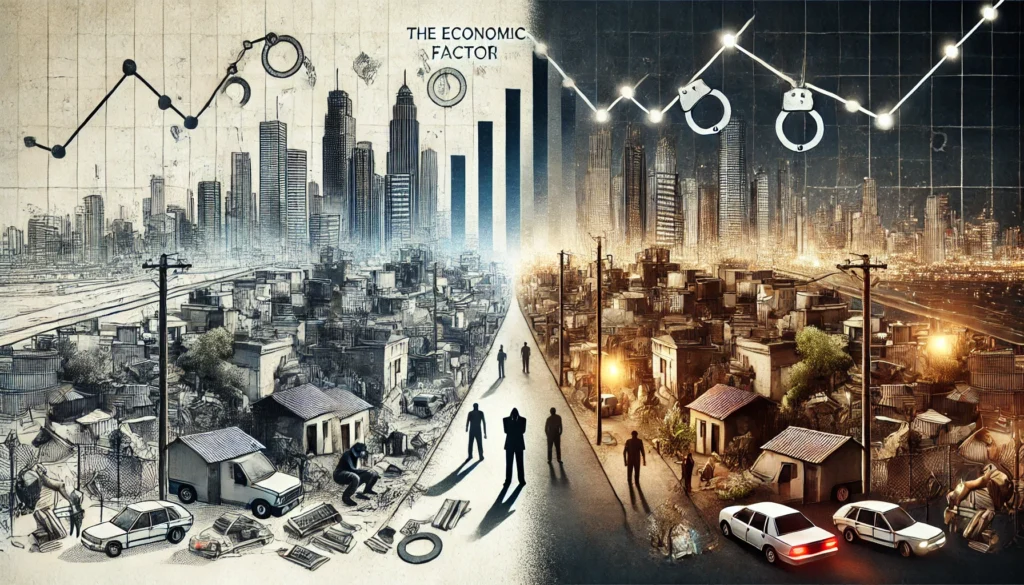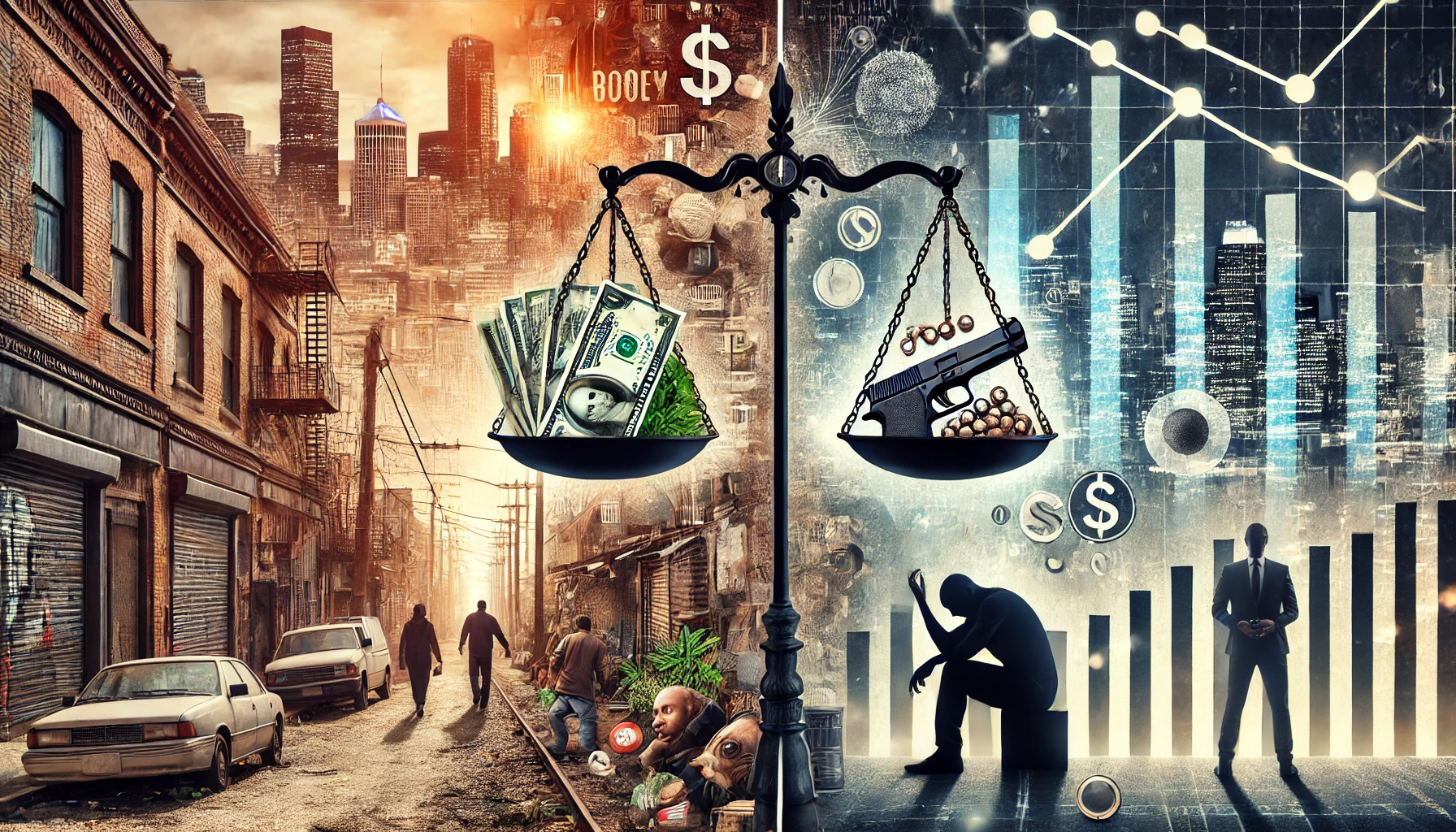Introduction
The economic factor in criminology explores how financial conditions, poverty, inequality, and access to resources influence criminal behavior. Economic theories of crime suggest that disparities in wealth and opportunities often drive individuals or groups toward illegal activities as a means of survival or advancement. By examining the interplay between economics and crime, criminologists can better understand the societal roots of criminal behavior and design effective prevention strategies.
The Role of Economic Factors in Criminology
- Defining Economic Factors
Economic factors refer to conditions related to income, employment, wealth distribution, and financial stability that impact individuals and communities. These conditions shape opportunities and constraints, influencing behavior, including engagement in criminal activities. - Historical Context
Early criminological studies, such as those by Karl Marx and later sociologists, highlighted the role of economic disparity in fueling social unrest and crime. Modern criminology continues to investigate the economic dimensions of deviance.
Key Economic Theories in Criminology
- Strain Theory and Economic Pressure
Robert Merton’s strain theory emphasizes that when individuals face limited legitimate means to achieve societal goals (like wealth or success), they may resort to crime. Economic hardship exacerbates this strain, especially in marginalized communities. - Routine Activity Theory
This theory suggests that crime occurs when motivated offenders encounter suitable targets in the absence of capable guardians. Economic conditions, such as unemployment or poverty, can increase the pool of motivated offenders. - Rational Choice Theory
Rational choice theory argues that individuals weigh the costs and benefits of criminal behavior. Economic deprivation may tip this balance, making crime appear as a rational response to financial hardship. - Conflict Theory and Economic Inequality
Conflict theory, rooted in Marxist thought, posits that economic inequality creates tensions between classes. Wealthy groups use the legal system to maintain their power, while the economically disadvantaged may turn to crime as a form of resistance or necessity.
Economic Conditions That Influence Crime
- Poverty and Unemployment
- Communities with high poverty rates often experience higher crime levels due to limited opportunities and increased desperation.
- Unemployment contributes to crime by reducing income and increasing idle time for individuals.
- Income Inequality
- Countries or regions with significant income disparities tend to have higher crime rates. This correlation is especially strong for violent crimes, as inequality breeds frustration and resentment.
- Urbanization and Economic Disparities
- Urban areas with concentrated poverty often see spikes in property crimes and gang-related activities, driven by a lack of access to economic resources.
- Economic Crises
- During periods of economic downturns, such as recessions, crime rates, particularly theft and fraud, tend to increase as individuals struggle to meet basic needs.

Impact of Economic Factors on Crime Prevention and Policy
- Social Welfare Programs
Governments can reduce crime by addressing economic disparities through social welfare programs, unemployment benefits, and minimum wage laws. - Job Creation Initiatives
Providing employment opportunities in high-crime areas can decrease criminal behavior by offering alternative means of income. - Education and Skills Training
Investing in education and skills training equips individuals with the tools needed to escape poverty and reduces reliance on crime. - Urban Development Projects
Revitalizing economically disadvantaged neighborhoods can improve community morale and reduce crime rates.
Critiques of Economic Explanations of Crime
- Oversimplification
While economic factors are significant, focusing solely on them neglects other influences, such as psychological, cultural, or biological factors. - Exceptions to the Rule
Not all individuals facing economic hardship engage in crime, suggesting the need for a more nuanced understanding of criminal behavior. - Global Variation
Economic factors influencing crime may vary across different cultural and political contexts, making universal conclusions difficult.
Case Studies and Statistics
- Income Inequality and Crime: Research shows that countries with higher Gini coefficients (a measure of income inequality) often experience more violent crimes.
- Economic Downturns: During the 2008 financial crisis, many countries saw an increase in property crimes like theft and burglary.
Conclusion
The economic factor in criminology underscores the critical link between financial conditions and criminal behavior. By addressing poverty, inequality, and unemployment, policymakers and criminologists can create strategies to reduce crime and promote social stability. While economic factors are not the sole determinants of crime, they remain a fundamental aspect of understanding and preventing criminal behavior in modern societies.

